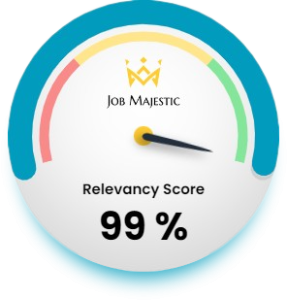Language is a beautiful thing. It allows us to communicate and express our thoughts & emotions effectively. Not only that, but it also helps job seekers in landing their dream job!
Generally, there are four basic elements of language proficiency on resume, namely reading, writing, speaking, and listening. It is also one of the main skills we can highlight in a resume.
Why is Language Proficiency Important?
As a job seeker, you’d want to include your language proficiency on resume for some of these reasons:
- That job requires proficiency in a certain language(s)
- You want to show your talent, making you more attractive
- You want to prove that you are constantly learning new things
It is important to also identify your level of proficiency. For example, if you are applying for a translator job, your proficiency level must be at least “Proficient”.
You’ll need to state what language, how good are you at it, as well as in which element (e.g. reading or listening) so that your potential employer can more accurately evaluate your profile and match their expectations.
Ready to start including your language proficiency on resume? Let’s get started.
Tips to Include Your Language Proficiency on Resume
1. Do a Self Evaluation
Before inserting your language proficiency on resume, you’ll need to understand the four common proficiency levels:
- Basic – you understand simple words and phrases but are not able to have basic conversations.
- Conversational – you are able to engage in simple conversations, but are not fluent.
- Proficient – better than a conversational speaker, usually good enough to apply for a job with the language requirement.
- Fluent: high level of comfort using the language and can converse in the same manner as a native speaker.
Do you have certifications? Are you able to converse with native speakers? You need to first understand your levels of proficiency. To apply for jobs in Malaysia, the languages required are mainly English, Bahasa Malaysia and/or Mandarin.
2. Research Job Postings
Now that you have evaluated your language proficiency, the next step is to research the job advertisements and evaluate the importance of language for the positions.
Take note of the job requirements and job descriptions. What language(s) are required for what kind of tasks? Is it for listening and speaking only? Or writing only? Lastly, what’s the proficiency level required for these element(s)?
Doing this exercise will help you decide if you should apply for the positions or not. For example, applying as a translator or customer service executive would normally require at least bi-lingual capabilities in reading, listening and speaking, on a “Proficient” level.
3. Highlight Language Proficiency on Resume
Now that you have aligned both sides in terms of what you can offer and what companies need, it’s time to include your language skills in your resume. Here’s how.
a. Under the Work Experience Section
Perhaps you’ve possessed similar work experience in the past that requires multi-language proficiency, you may just include your job description as usual and it will be self-explanatory (e.g. best Mandarin – Japanese Translator 2021)
b. Under the Skills Section
If you have multiple skills and languages are one of them – for example:
- Microsoft Office Suite
- Digital Marketing
- Spanish – native speaker
- Japanese – proficient (N1)
c. A separate “Languages” section
If you speak several languages and would like to highlight them -for example:
- English — Native/Bilingual (ILR Level 5)
- Spanish — Native/Bilingual (ILR Level 5)
- French — Professional Proficiency (ILR Level 4+)
- German — Professional Working Proficiency (ILR Level 3)
Unspoken rule: Always list your language proficiencies in descending order – starting from the most fluent language at the top.
4. Honesty is The Best Policy
A golden tip to not lose credibility and land a bad first impression during job interviews – never ever lie about, or “overestimate” your language proficiency levels.
Imagine going for an interview and being tested on the spot. Or worse, being assigned to handle important tasks that require language proficiency that you do not have. If your employer discovers this (easily by the way), your reputation could be jeopardised.
Closing Remarks
Now that you understand how to effectively include your language proficiency on your majestic resume, you are one step closer to landing your dream job.
Remember to be honest when it comes to your skills, including language skills. Languages can be learned in a short amount of time, but reputation damage could be harmful for a lifetime.
Want to apply for the best full-time jobs in Malaysia? We have just the right guidance for you. Whether it be writing a cover letter or filming a visume, Job Majestic is here to help.







